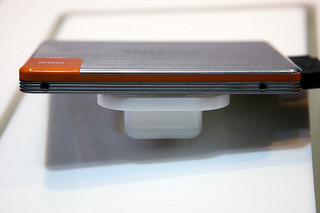 Healthcare Information Technology is a Very Dynamic Entity
Healthcare Information Technology is a Very Dynamic Entity
The healthcare industry has been going through some massive reforms. Not only is this the case with federal requirements, healthcare insurance and access, but also in the information technology arena. The increased utilization of computerized medical records and the Meaningful Use of EHRs has created an explosion of data and has necessitated its own reform, especially where database information systems and data storage are concerned.
Flash Data Storage
While new to healthcare IT, flash data storage has been used in popular electronic devices like cell phones, tablets, laptops, and MP3 players for years and has been popularized as the ubiquitous thumb drive. Although it may be more expensive, it has advantages and benefits that tend to outweigh the costs.
Defining Flash Storage
Flash data storage may also be represented under the terms SSD and Tier 0 (zero). In a simple sense, it is a faster means of storing and retrieving data. A solid-state drive is an immobile (non-spinning) memory unit that is capable of handling and storing data continually. This has been extremely important for the banking and finance industries where nanosecond transfers can result in massive dollar differences. This same IT requirement can now be seen in healthcare where an immense amount of data needs to be collected, stored, and accessed daily.
With solid-state drives there are no spinning disks or moving read/write heads. Instead, SSDs utilize integrated circuit assemblies to store data with no moving parts. This takes them a step beyond the former tier 1 high speed hard disk drives and has created a new designation of tier 0.
Costs
The cost of flash data storage is more expensive than spinning disk drives, but it becomes less overly expensive when purchasing more storage capability. Larger healthcare networks that have massive data to store and access will pay less per unit of data than smaller stand alone hospitals or physician practices. However, IT hosting companies like Netgain can provide the transaction speed and storage capability that flash provides in a cost effective and efficient manner.
Benefits and Advantages
Accessing applications is important to the healthcare industry. The need to be able to quickly enter and retrieve information without interruption or experiencing technical difficulties is critical. With so much information being handled daily, flash data storage makes it possible for the healthcare industry to provide IT service efficiently and accurately. The applications stored have a higher performance rate, less lag, and decreased instances of technical issues. In fact, Netgain customers have noted an increase in application performance of 30%. One client even noted an improvement from a normal eight-hour maintenance window to just one hour being required. These instances are a result of testing and using flash data storage for applications and information.
Impact on the Healthcare Industry
Flash data storage has offered the healthcare industry a solution for handling massive amounts of data and sensitive applications that need to have high performance and quick accessibility. For instance, EHR software have shown a significantly great performance. The recommendation is that EHRs be accessed using flash storage. The benefits are visible and applicable. There are some EHR titles that are starting to see the benefits of Flash and recommending that their EHR be run on Flash. We expect more EHRs to be recommending or requiring this soon.
The healthcare industry has to be able to access applications and information and retrieve files and data quickly and successfully without delays and difficulties. Still have questions about taking advantage of the benefits of Flash at your practice? Call us at 877-797-4700.
 Support
Support Contact Us
Contact Us




